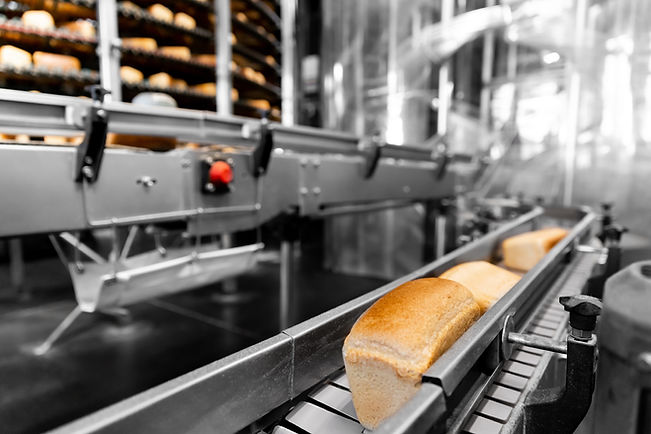

Conveyor Belts for Bakery: Enhancing Efficiency and Quality
Good morning/afternoon/evening everyone!
Today, I am excited to talk to you about the importance of conveyor belts in the bakery industry. Conveyor belts play a vital role in enhancing efficiency and maintaining the quality of bakery products. In this presentation, we will explore the benefits of using conveyor belts in bakeries and discuss the different types of conveyor belts available. Let’s get started!
I. Importance of Conveyor Belts in Bakeries:
A. Efficient Production:
1. Conveyor belts enable continuous and automated movement of bakery products, reducing manual labor and increasing production efficiency.
2. They ensure a smooth flow of products, minimizing the chances of jams or delays in the baking process.
B. Quality Control:
1. Conveyor belts help maintain the quality and consistency of bakery products by ensuring uniform baking and cooling times.
2. They prevent product damage and contamination during transportation, maintaining the integrity of the baked goods.
C. Space Optimization:
1. Conveyor belts allow for optimal space utilization by eliminating the need for additional storage or handling areas.
2. Vertical or inclined conveyor systems can be used to utilize vertical space efficiently.
II. Types of Conveyor Belts for Bakeries:
A. Wire Mesh Belts:
1. Ideal for baking bread, pastries, and other products that require proper air circulation.
2. The open mesh design allows for even heat distribution, ensuring uniform baking.
B. Modular Plastic Belts:
1. Suitable for transporting fragile bakery products, such as cakes, cookies, and pastries.
2. The non-stick surface prevents sticking or damage to the products.
C. Stainless Steel Belts:
1. Resistant to high temperatures and easy to clean, making them suitable for baking processes that require heat sterilization.
2. Ideal for conveying heavy bakery products or products with high moisture content.
III. Maintenance and Safety Considerations:
A. Regular Cleaning:
1. Conveyor belts should be cleaned regularly to prevent the accumulation of debris and ensure food safety.
2. Proper cleaning procedures should be followed to maintain hygiene standards.
B. Routine Inspections:
1. Regular inspections of conveyor belts help identify any signs of wear and tear, ensuring timely maintenance.
2. Prompt repairs or replacements can prevent unexpected breakdowns and production delays.
C. Employee Training:
1. Proper training should be provided to bakery staff on operating and maintaining conveyor belts safely.
2. Safety protocols, such as emergency stop buttons and safety guards, should be implemented to protect workers.
Conclusion:
In conclusion, conveyor belts are essential tools for bakeries, enhancing efficiency, and maintaining the quality of bakery products. By enabling continuous production, ensuring consistent baking times, and preventing product damage, conveyor belts contribute significantly to the success of bakery operations. Choosing the right type of conveyor belt and implementing proper maintenance and safety practices are crucial for maximizing their benefits. Thank you for your reading this blog.